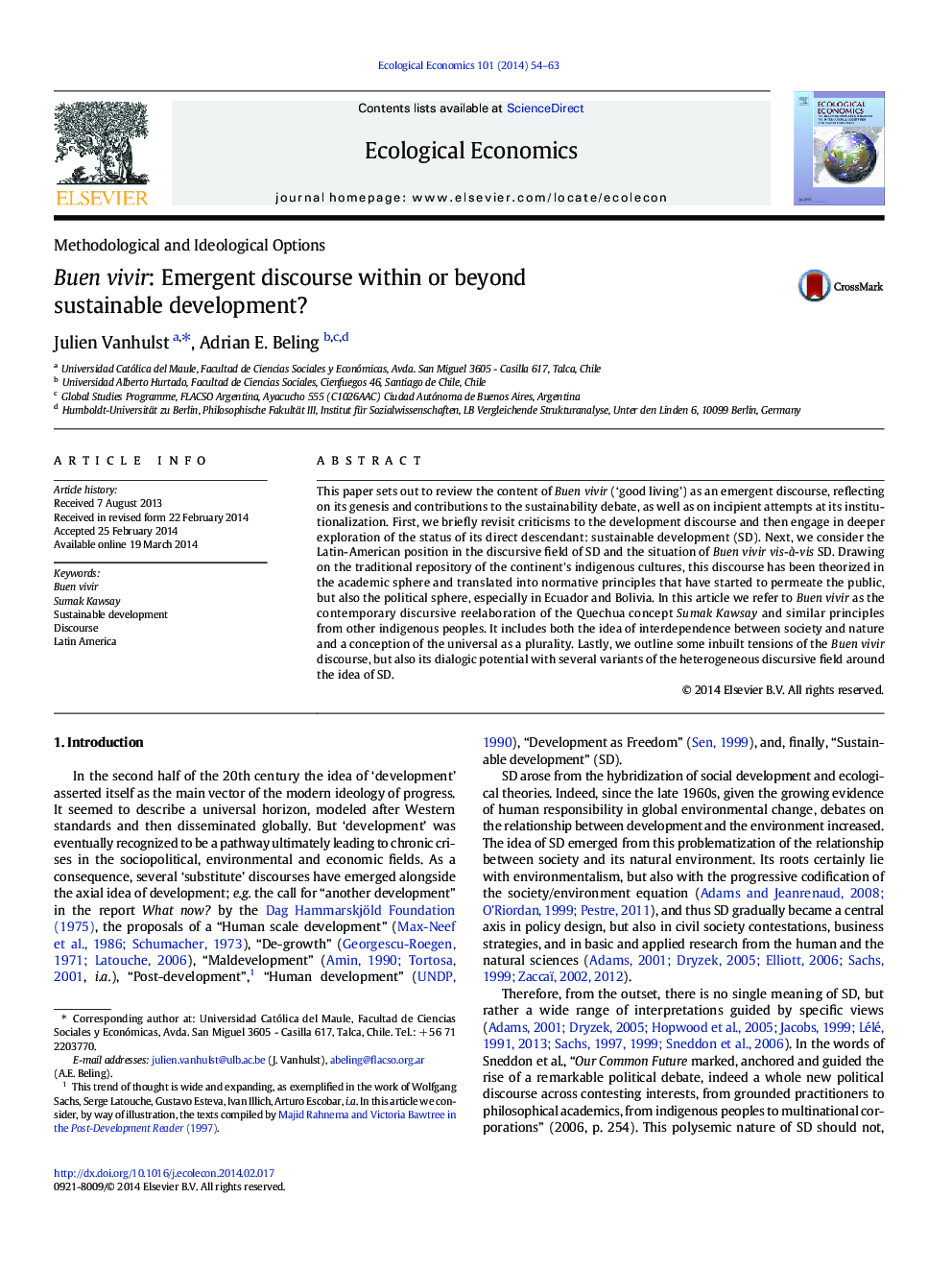| Article ID | Journal | Published Year | Pages | File Type |
|---|---|---|---|---|
| 5049690 | Ecological Economics | 2014 | 10 Pages |
â¢The issue of sustainability has generated the heterogeneous discursive field of sustainable development (SD).â¢Buen vivir (BV) is a distinctive Latin American variant into SD discursive field.â¢BV has both a promising dialogical and transformative potential.â¢In his political appropriations, the BV discourse is not devoid of ambiguities that make it polysemic (such as SD).â¢Despite paradoxes, BV opens new windows of opportunity for social learning within and beyond SD.
This paper sets out to review the content of Buen vivir ('good living') as an emergent discourse, reflecting on its genesis and contributions to the sustainability debate, as well as on incipient attempts at its institutionalization. First, we briefly revisit criticisms to the development discourse and then engage in deeper exploration of the status of its direct descendant: sustainable development (SD). Next, we consider the Latin-American position in the discursive field of SD and the situation of Buen vivir vis-Ã -vis SD. Drawing on the traditional repository of the continent's indigenous cultures, this discourse has been theorized in the academic sphere and translated into normative principles that have started to permeate the public, but also the political sphere, especially in Ecuador and Bolivia. In this article we refer to Buen vivir as the contemporary discursive reelaboration of the Quechua concept Sumak Kawsay and similar principles from other indigenous peoples. It includes both the idea of interdependence between society and nature and a conception of the universal as a plurality. Lastly, we outline some inbuilt tensions of the Buen vivir discourse, but also its dialogic potential with several variants of the heterogeneous discursive field around the idea of SD.
